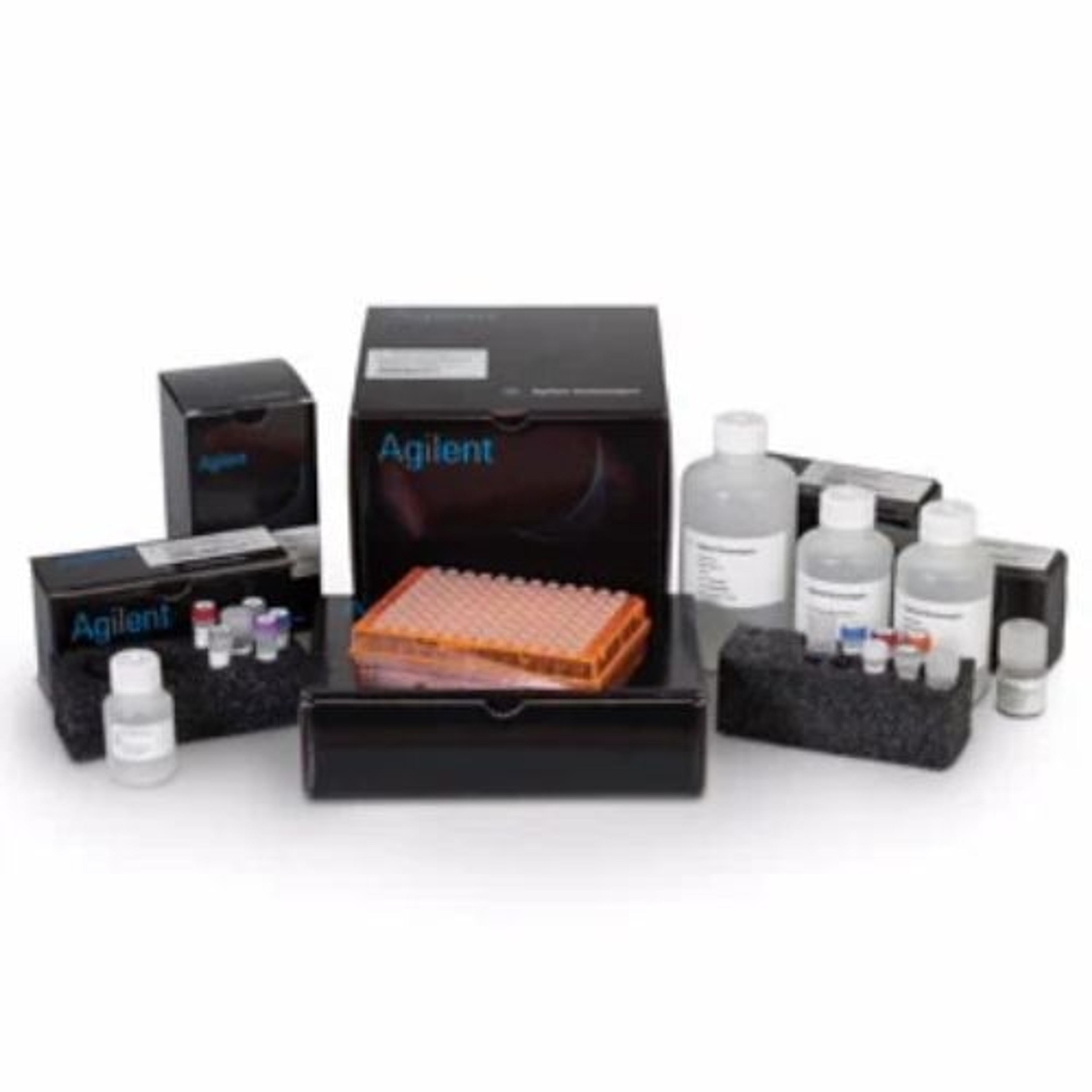Tools to advance precision oncology
Global Head of Medical Affairs at Agilent Technologies offers insights into the technologies driving the field of precision oncology
21 Feb 2024

What are the latest tools for clinical and cancer research? We spoke with an expert, John Palma, Ph.D., Global Head of Medical Affairs at Agilent Technologies, a leading tools provider, to find out.
Dr. John Palma has been developing molecular diagnostic tests and supporting clinical evidence generation for the past 25 years. The highest responsibility of his teams is to integrate the voice of the patient, clinicians, and healthcare networks into Agilent’s innovative solutions to advance quality of life. It all starts with basic and translational research products that help define diagnostic opportunities.
Which markets does Agilent focus on?
JP: We focus our expertise on six key markets (diagnostics, research, pharmaceuticals, environmental and forensics, food, chemicals, and advanced materials) to help our customers achieve their goals. As we drill down into the oncology space, we strive to advance precision oncology by providing our customers with research and clinical tools that support new disease insights, drug, and device development.
What has been the most exciting cancer genomics development in the last 25 years, and what should we anticipate in the next 25 years?
JP: There are many exciting aspects of genomics that deserve a nod from the past 25 years – PCR is still a major backbone for all genomic NGS solutions. Thinking about where genomics is today, we are a few years away from the 25th anniversary of the remarkable effort that resulted in the sequencing of the human genome. The private and public sectors have made great strides, but we need to continue to increase investment in basic research to unlock the promise of the next 25 years. Keep an eye towards the burgeoning clinical space of liquid biopsies and digital (plus AI) pathology solutions; there is so much more this field has to offer for cancer patients and for other diseases.
What key challenges do cancer genomics customers currently face?
JP: Key challenges for cancer genomics are like the marketing/advertising triangle: quality (accuracy), speed, and cost. NGS solutions need to improve accuracy and reduction of background signals, have complex workflows that need further simplification, and are expensive when flow cells are not fully utilized. One example, with error suppression through molecular barcoding or clonal hematopoiesis filtering, there is improved accuracy. With compatible workflows (DNA+RNA), samples can be combined and processed with faster turnaround time. With greater platform competition, there is progress on cost. There is still a long way to go to make these technologies accessible to all cancer patients around the world.
What solutions does Agilent provide for oncology (i.e. cancer and pathology markets)?
JP: Agilent offers solutions across the cancer continuum, from basic and translational research to clinical diagnostics. We have several immunohistochemistry (IHC) and fluorescent in-situ hybridization (FISH) diagnostics for pathology that are approved for different indications around the world with specific claims for different regions. (Examples below are for the US only):
- PD-L1 IHC 28-8 pharmDx serves as an aid in the diagnosis for non-small cell lung cancer (NSCLC), or for patients with >1% IHC expression non-squamous NSCLC, head and neck squamous cell carcinoma, and urothelial cancer for treatment with nivolumab
- PD-L1 IHC 22C3 pharmDx is a diagnostic biomarker that is approved for NSCLC using a tumor proportion score (TPS) and for esophageal, HNSCC, cervical and triple negative breast cancer by combined positive scoring (CPS) for treatment with pembrolizumab
- Ki67 IHC MIB-1 pharmDx is indicated as an aid in identifying patients with early breast cancer for consideration of treatment with abemaciclib in combination with endocrine therapy
- HER2 IQFISH pharmDx and HercepTest aid in the diagnosis of breast and gastric cancer for treatment with certain HER2-specific treatments
We are also working with many global pharmaceutical partners for additional claims and new biomarkers and indications in different countries.
In the translational and research setting, we are expanding our SureSelect cancer genomics portfolio (RUO) with new products this year. In the spring, we launched a new comprehensive genomic profiling assay (SureSelect Cancer CGP assay*) for solid tumors. And in September, we released a set of tumor-specific gene panels (lung, colon, pancreas, kidney, bladder). So that means scientists can interrogate genomic content for a wide range of targets using our SureSelect Cancer portfolio: from Exomes (~22,000 genes) to CGP (679 genes) to tumor-specific gene panels (~50 genes each). Similar Agilent reagents and custom panels are also used by our customers to develop their own NGS solutions for the market.
Tell us more about the SureSelect Cancer CGP assay.
JP: Our SureSelect Cancer CGP assay was developed with workflow and content solutions in mind. Customers need fast turnaround time to results, efficiency with minimal hands-on time and automation options, and performance with low input samples. To help ensure that the content of our assays is clinically relevant, we consulted with a global network of key opinion leaders in oncology to advise on the gene content for the SureSelect Cancer CGP assays. In addition, the content was also sourced directly from key clinical databases and guidelines (NCCN, NHS, ASCO, ESMO, etc.). NGS solutions offer comprehensive genomic profiling that optimizes insights from limited tissue biopsies. A recent poster presentation at ASCO 2023, by Mary K. Nesline, MS, from Labcorp Oncology, suggests that CGP testing provides more information and actionable results compared to initial single-gene testing (SGT).
To meet the customer need for lower-cost genomic profiling, we just launched the smaller tumor-specific panels. This means tumor genomic profiling is accessible to more customers but the cost of sequencing for individual samples is lower and can fit within reimbursement and private payer guidance when customers use their own validated tests in CLIA labs.
What does this technology enable your customers to do that they couldn’t otherwise?
JP: For translational research and genomic profiling for applications such as cancer biomarker discovery, laboratory scientists can use the SureSelect Cancer CGP assay to assess clinically relevant somatic variants, including SNVs, CNVs, indels, gene fusions, and translocations, to the immuno-oncology biomarkers TMB (tumor mutational burden) and MSI (microsatellite instability). The CGP assay enables the detection of variants from DNA and RNA, from a single sample. The breadth of this content allows translational researchers to gain deeper insights on drivers of cancer or resistance to targeted therapies. We believe that we can deliver on price, workflow efficiency and speed, and improved accuracy relative to other platforms.
What level of support and training can your customers expect?
JP: Agilent has a global network of application specialists who support customers across the entire workflow: beginning with sample and library QC, library preparation and target enrichment, sequencing, and all the way through to data analysis, i.e. secondary and tertiary analysis. Understanding our customer’s needs along the workflow, allows Agilent to deliver efficiency and productivity.
How do you see Agilent helping to advance the future of precision oncology?
JP: Agilent is a tools provider and in the near term, we will enable full customization of the CGP assay to accommodate the needs of any clinical and translational research lab. We look forward to introducing a new, cutting-edge technology that significantly simplifies the workflow for liquid and tissue biopsy and incorporates methylation profiling. Agilent also offers a growing catalog of approved companion diagnostic pathology tools that help clinicians deliver timely results to their patients.
*Disclaimer: SureSelect Cancer CGP assay is For Research Use Only. Not for use in diagnostic procedures.

